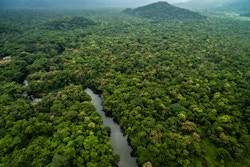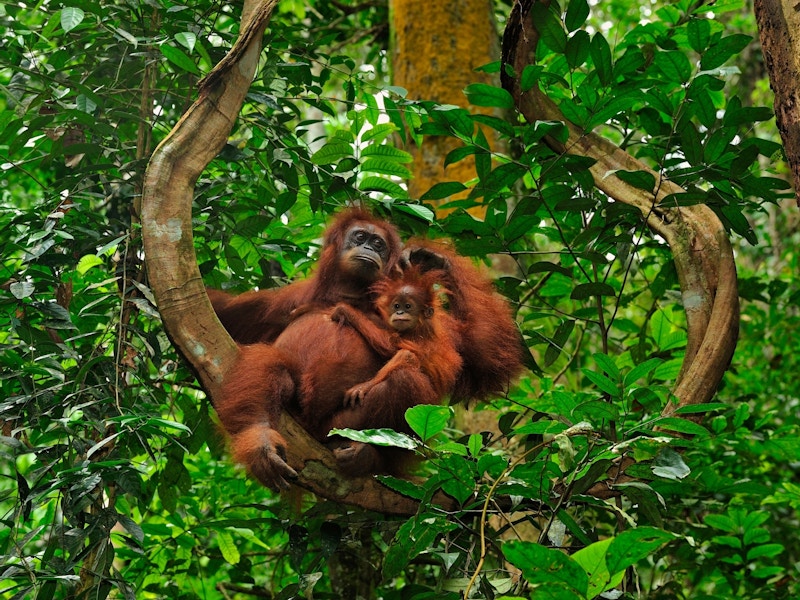
Our impact
It can be done! We have been working to save the rainforest and protect the rights of Indigenous peoples and local communities since 1989. Together with our valued partners, we have achieved results far beyond what our budget and size would indicate.
ORANGUTANG: A Sumatran orangutang (Pongo abelii) with her baby in the Indonesian rainforest. Photo: Thomas Marent

The area of rainforest that we and our partners help protect is roughly the size of Norway and Sweden combined.
Rainforest Foundation Norway’s work has produced concrete and visible results:
- Court cases against logging companies have been won
- Effective campaigns against palm oil and other drivers have rocked entire industries
- Indigenous groups have gained greater recognition for their rights and traditional lands
- Rainforest protection now tops the political agenda, both in Norway and internationally
Four recent results:
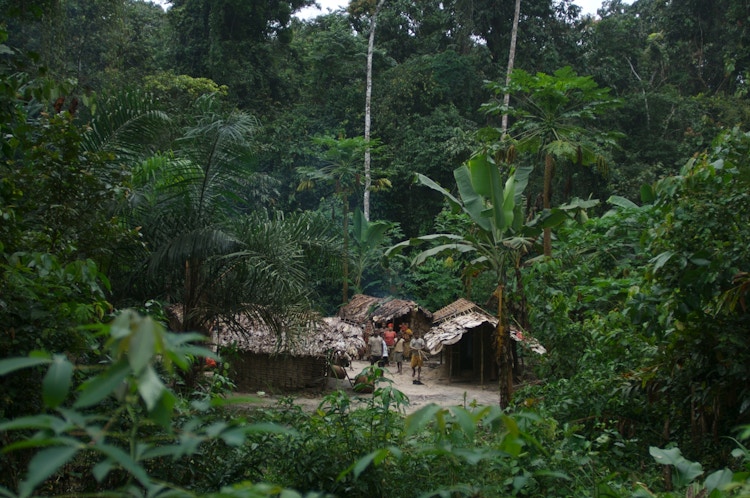
VILLAGE: Indigenous village in the Congolese rainforest. Photo: Johan Wildhagen
1.
We contributed to increasing rainforest under sustainable
Indigenous and local community management by 45.000 km2 in 2023. That is
an area larger than Switzerland.
Now, we are working to create large, contiguous areas of protected rainforest for isolated Indigenous peoples in Peru and Brazil.

MINISTERS: Environmental ministers of Norway, Brazil and the UK meeting at COP28 in 2023. Photo: Julie Wentzel Frøland/Rainforest Foundation Norway
2.
We successfully advocated for 92 million USD in additional funding for Norway's International Climate and Forest Initiative in 2024.
We are currently working on direct climate funding for Indigenous peoples and local communities in the Democratic Republic of the Congo.

PROTEST: Aurelio Chino, an Indigenous Peruvian, protesting deforestation in the Amazon in 2012. Photo: Stefan Kistler/Rainforest Foundation Norway
3.
We supported Indigenous efforts to evict a mining company and annul 24 logging concessions in the Peruvian Amazon in 2023.
Together with our partners, we constantly monitor and act on threats to the rainforest.
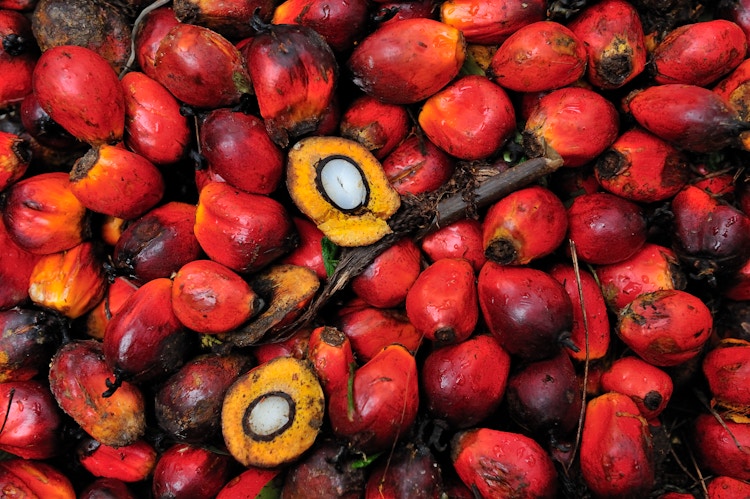
FRUIT: Palm oil fruit. Photo: Shutterstock
4.
We contributed to the adoption of a new EU law obliging companies to ensure that their imported palm oil, timber, meat, soy, leather, coffee, and cocoa do not derive from deforested land.
We have also started working with investors with assets totaling 2.8 trillion USD to limit deforestation and halt human rights abuses in the electric vehicle industry's nickel supply chain. The increasing demand for minerals used in car batteries is driving deforestation.

Did you know?
After a campaign launched by Rainforest Foundation Norway in 2012, Norwegian food producers quickly cut their use of palm oil by two thirds.
HIGHLIGHTS OF THE RESULTS WE HAVE CONTRIBUTED TO SINCE 1989:
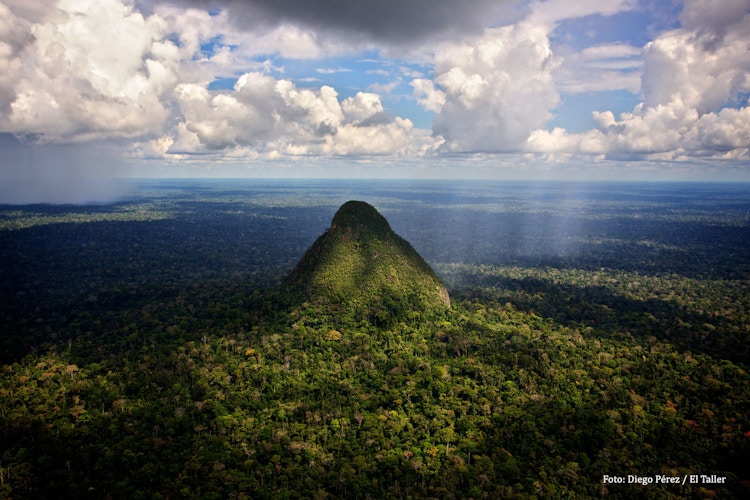
2023 - 5000 km2 of rainforest approved as a protected area for isolated indigenous peoples in Peru.
In Peru, 5,000 square kilometers of rainforest were approved as a protected area for indigenous peoples in voluntary isolation. Indigenous peoples without contact with the outside world are protected so that they can live in peace. The protected area is roughly the size of Trinidad and Tobago.
Rainforest Foundation Norway has been working on the issue for many years. Victory!

2023 - Norway's International Climate and Forest Initiative receives NOK 1 billion in additional funding in 2024.
This means that Norway donates a total of NOK 4 billion to rainforest conservation as a climate measure.

2022 - New EU law stops deforestation products from entering Europe
The EU adopted a new law obliging companies to ensure that their imported palm oil, meat, soy, leather, coffee, and cocoa do not derive from deforested land. This is an important and necessary decision that Rainforest Foundation Norway has worked for many years to realize.

2022 - New law grants important rights to Indigenous peoples in DRC
Years of Indigenous-led activism paid off as ground-breaking legislation with far-reaching implications for Indigenous peoples and forests in the Democratic Republic of the Congo is signed into law. The law strengthens the rights of Indigenous peoples and gives them access to essential social services. The law also recognizes Indigenous peoples' right to the lands and natural resources they own or use.

2021 - Victory for rainforest and isolated peoples in Peru
Rainforest the size of Cyprus receives official protection in Peru. The area is home to a number of isolated peoples. Commercial lumber and oil concessions have been revoked.

2021 - Deforestation-free soy available for salmon producers
Brazilian salmon-feed supply growers CJ Selecta, Caramuru and Imcopa/Cervejaria Petrópolis announce that anything they produce and harvest post-August 2020 must be part of a deforestation- and conversion-free soybean supply chain. Under the new commitment, the entirety of their soybean business operations will be put to the same standard for all markets. Rainforest Foundation Norway has long pushed for this, and key Norwegian salmon industry leaders have supported the transition.

2019 - Powerful investor group demands halt to deforestation
230 investors from 30 countries demand a halt to deforestation of the Amazon. The investors control combined assets totalling 16.000 billion dollars, or eight times the amount of the GDP of Brazil. Rainforest Foundation Norway has for many years worked to get investors to apply pressure to companies that contribute to deforestation.

2019 - Deforestation rates decrease in Indonesia
Deforestation rates decrease in Indonesia, and the country receives the first payment from the Norwegian International Climate and Forest Initiative for reduced emissions from deforestation. Laws and regulations aimed at providing better legal protection for Indonesian rainforests, the third largest in the world, were passed. Our Indonesian partners made substantial contributions to this process.
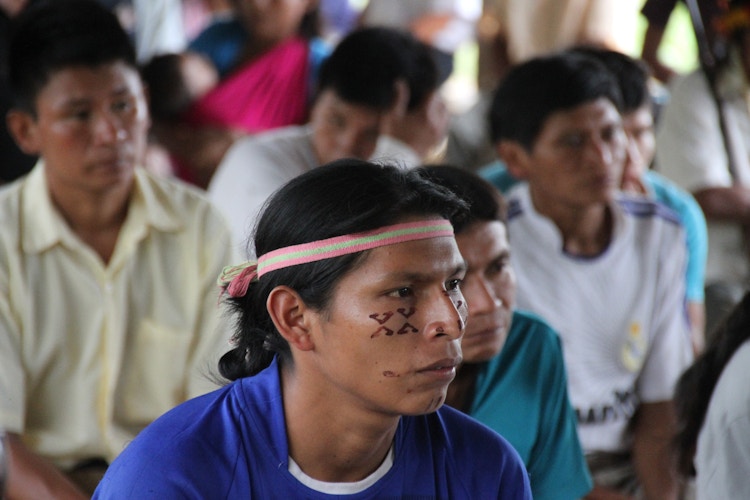
2018 - Historic win for Indigenous peoples in Peru
A Peruvian court issued a ruling in favor of the Achuar people in the northern Peruvian Amazon. The court ordered the government to proceed with the collective titling of the Achuar ancestral territory. It is the first time an indigenous community in Peru is acknowledged the right to land, and hopefully the ruling with be precedent setting: Nine other communities are demanding the same rights in this part of the Amazon.

2017 - Amazon rainforest the size of Denmark saved from mining
Rainforest protection groups hailed a victory as the Brazilian government announced a U-turn on plans to open up the Amazon rainforest to mining corporations. When Brazil announced a decree to abolish the Renca reserve, an area the size of Denmark, it sparked an outrage. Our partners in Brazil protested against the plans and contributed to the reversal. For now, the area is protected.

2017 - Oil concessions in Peruvian Amazon withdrawn
Peruvian authorities withdrew oil concessions in a large area of the Amazon rainforest. The Canadian company Pacific E&P pulled out of the concession that had provoked opposition in Peru. Our Peruvian partners were among those who protested against the operation.

2016 - Norway’s sovereign wealth fund raises the bar on human rights
The world’s largest sovereign wealth fund has published a human rights policy for the first time. The fund expects companies to respect all human rights throughout all their operations, including in their supply chains. The publication on human rights by Norges Bank Investment Management (NBIM), which manages the Norwegian Government Pension Fund Global, is significant as NBIM is a major player in global investment circles.

2016 - Ground-breaking victory in Papua New Guinea
360 000 hectares of lush rainforest became a protected area made safe for future generations. Rainforest Foundation Norway has since 1997 supported the struggle to protect the Managalas Plateau where 21 000 people, speaking three different languages, live in small villages. The victory is an important example of how there are alternatives to plantations and logging, and the experience gained over the two last decades is invaluable to the entire country.

2015 - Norway to further reduce deforestation impact of investments
Norway’s Government Pension Fund Global (GPFG) strengthens its commitment to avoid investing in companies responsible for the destruction of the world’s rainforests, as part of its new climate change mitigation policy. Rainforest Foundation Norway has challenged the GPFG to reduce the deforestation impact of its investments, and has given detailed input in the drafting of the new policy.

2013 - Norway divests from palm oil companies
The largest sovereign wealth fund in the world, Norway’s Government Pension Fund Global (GPFG), divests its shares in 23 palm oil companies that are considered to be responsible for tropical deforestation. The GPFG’s investments in the palm oil industry are thus reduced by more than 40 percent. This follows years of campaigning by Rainforest Foundation Norway for a reduction in the GPFG’s investments in the palm oil industry.

2013 - Rainforest Foundation Norway protects territory for isolated Indigenous groups
Rainforest Foundation Norway is the main actor in the protection, by means of eight control posts, of a 60,000 square kilometer contiguous territory for Indigenous peoples living in voluntary isolation in Peru. The manned posts stop loggers and gold miners who illegally attempt to enter the territory of the uncontacted Indigenous peoples.

2012 - Norwegian food producers cut palm oil use by two thirds after successful campaign
Rainforest Foundation Norway launches a campaign with two aims: to reduce Norway’s consumption of palm oil and to expose the link between deforestation and the production of palm oil. The campaign receives extensive media coverage, resulting in increased consumer awareness. Norwegian food producers respond rapidly and, by the end of the year, have cut their use of palm oil by two thirds.

2011 - Illegal logging concessions revoked in the Congo
Rainforest Foundation Norway’s partners in the Democratic Republic of the Congo play a key role in ensuring that a number of illegal logging concessions are revoked. The area that is spared logging is larger in size than England.

2007 - Plans for vast logging concessions in the Congo Basin shelved
Following a request from Congolese Indigenous groups working in partnership with Rainforest Foundation Norway, the World Bank Inspection Panel warns that the Bank’s bias in favor of industrial logging will impoverish local peoples, and appeals to the Bank to uphold the traditional rights of forest-based peoples and promote rights-based alternatives to industrial logging. As a result, the Bank’s plan to grant 600,000 square kilometers of logging concessions in the DRC is shelved.

2007 - Peru given official warning to protect isolated indigenous groups
The Inter-American Commission on Human Rights gives an official warning to the Peruvian government for its failure to protect the indigenous groups living in voluntary isolation in the Peruvian Amazon. The warning is a response to the complaint which Rainforest Foundation Norway's partner organizations AIDESEP and FENAMAD presented to the Commission in 2005, holding the Peruvian state responsible for the dramatic situation faced by the isolated indigenous peoples.

2007 - Norway assumes leading role in rainforest protection
Norwegian Prime Minister Jens Stoltenberg announces at the United Nations Climate Change Conference in Bali that Norway will grant up to USD 500 million annually for rainforest protection in order to halt climate change. The measure was proposed to the Norwegian government by Rainforest Foundation Norway and Friends of the Earth Norway.

2004 - Historic ruling against illegal logging in Indonesia
The disclosure of corruption and illegal logging on the Mentawai Islands results in the first-ever ruling in Indonesia in which anti-corruption legislation is employed to apprehend those guilty of illegal logging. Two bureaucrats are sentenced to prison terms. This follows a lengthy investigation by Rainforest Foundation Norway’s partner organisation YCM, which uncovered and reported the illegal practices.
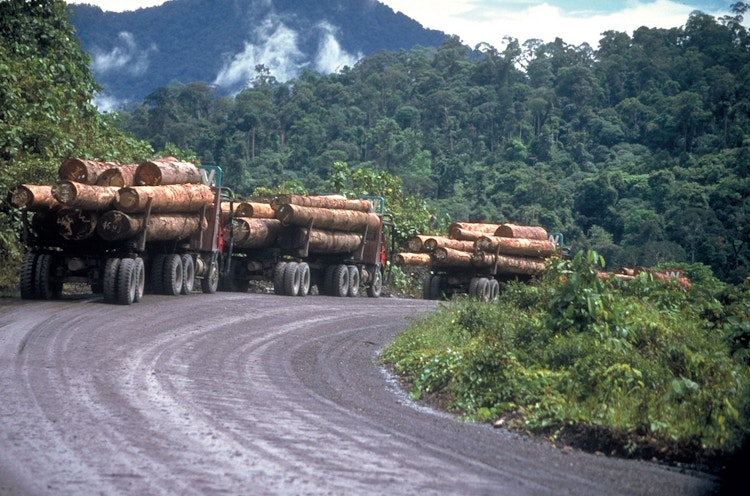
2003 - Logging project halted in Papua New Guinea
In Papua New Guinea, the highly destructive Kiunga-Aiambak project, a logging operation disguised as a road project, is halted. This follows years of advocacy work by CELCOR, RFN's local partner, with significant financial input from RFN. In 2011, the company responsible is sentenced to pay more than USD 100 million to local communities who have seen their livelihoods destroyed.
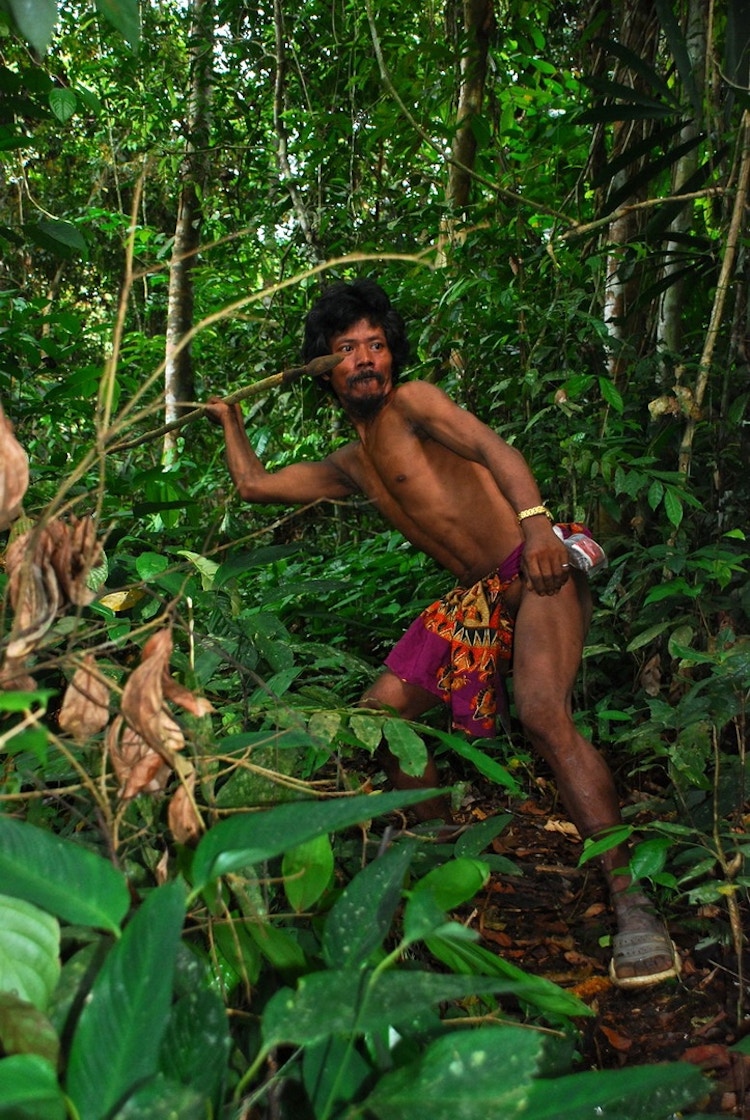
2000 - Orang Rimba gain exclusive user rights to their forest
Together with our local partner organisation, WARSI, we secured the establishment of a 600 square kilometer national park in Sumatra, Indonesia, securing exclusive user rights for the indigenous Orang Rimba people in and around the park. This was the first time in Indonesia that an indigenous group was permitted to maintain its presence and continue its traditional hunting and gathering activities within the boundaries of a national park.

1998 - 22 indigenous groups gain autonomy over their forest
22 indigenous groups in the northwestern Amazon, working in collaboration with Rainforest Foundation Norway, gain autonomy over their areas of forest. The Brazilian president signs the decrees which establish a number of indigenous territories along the Rio Negro river – home to 30,000 indigenous people and corresponding to the size of England.

1993 - Xingu Indigenous Park protected
Rainforest Foundation Norway's pilot project to monitor the borders around the Xingu Indigenous Park in Brazil combines advanced satellite monitoring with border expeditions undertaken by the Park's indigenous inhabitants. This project initiates an integrated program for the defense of the 27,000 square kilometer territory, which, in spite of enormous pressure from loggers, cattle ranchers and soybean cultivators, remains intact today.
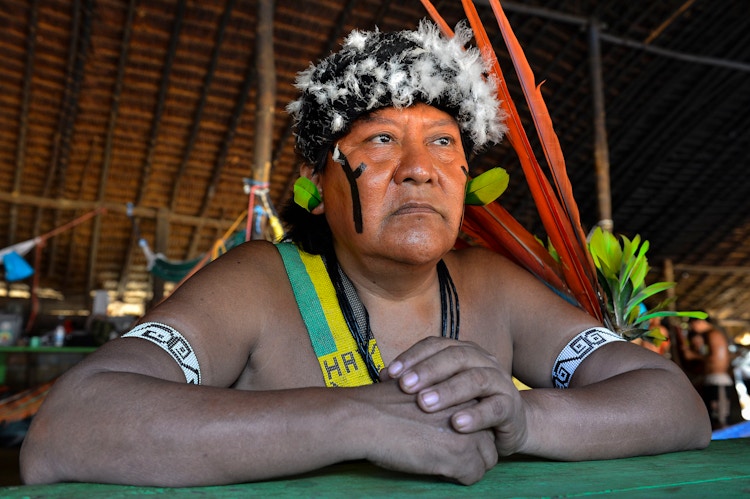
1991 - The Yanomami gain their own territory
The Yanomami people gain their own 96,000 square kilometre indigenous territory – larger than Portugal – after 15 years’ struggle. The support of the Norwegian Program for Indigenous Peoples for these efforts since the mid-1980s played a significant part in this outcome, and Rainforest Foundation Norway immediately joined the international campaign.

1991 - Menkragnoti Indigenous Territory established
The Rainforest Foundation’s initial project effects the coordination of the first ever privately funded demarcation of indigenous land in the Amazon region. 49,000 square kilometers of traditional land, the Menkragnoti Indigenous Territory in Pará state in Brazil, is demarcated, and then legally titled to the Kayapo people by the Brazilian government in 1992. Rainforest Foundation Norway provides 25 percent of the finances for the campaign.
